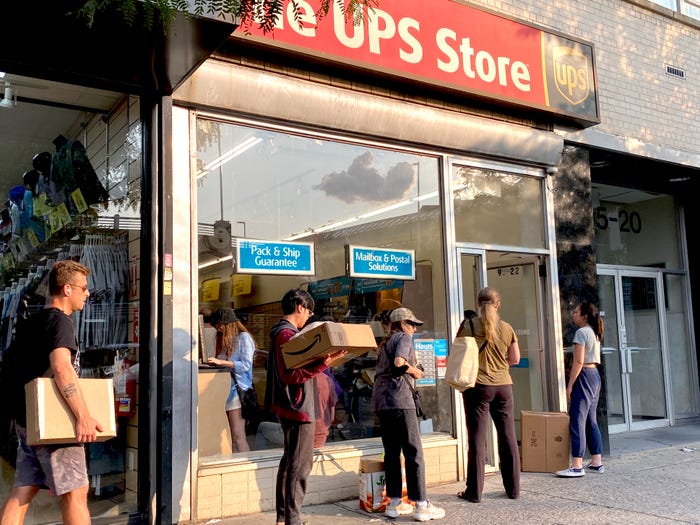UPDATE: U.S. consumers are facing an urgent and overwhelming crisis as new tariffs complicate international shipping, particularly with UPS. Many Americans are now grappling with unexpected costs and shipping delays, raising alarms about the impact on holiday shopping and consumer behavior.
Rich DeThomas of Huntsville, Alabama, recently experienced this firsthand when he ordered a dozen bottles of red wine from Italy. In late August, he was informed by UPS that his shipment was delayed due to new tariff regulations and eventually told it would not be delivered at all. After receiving a replacement shipment, he was slapped with a $13 fee for “abandoning” the initial case. “What the hell? What’s going on?” DeThomas exclaimed, capturing the frustration many consumers are feeling.
The chaos stems from the Trump Administration’s decision to end the de minimis loophole in August, which previously exempted shipments valued under $800 from tariffs. Now, consumers are forced to navigate complex tariff regulations, often acting as amateur customs brokers to ensure their packages arrive. Reports show that UPS has left many U.S.-bound packages stranded in warehouses for days or weeks, with some shipments even facing disposal due to customs issues.
Katie Golden, who resells clothing on Depop, ordered $179 worth of used apparel from the UK, expecting to pay some tariffs. Instead, she was shocked to receive a bill totaling $769, including a $54 brokerage fee. “It shouldn’t be this hard to order a package,” Golden said, highlighting the confusion surrounding the new tariff rules.
Tom Strohl, president of consulting firm Oliver Wight Americas, warns that businesses must adapt quickly or risk losing customers. He suggests that companies either factor tariffs into their prices or allow customers to pay them at the point of sale. “If customers are confused, it’s going to affect their brand,” he noted, emphasizing the urgency for businesses to address these challenges as the holiday shipping season approaches.
The impact of these tariffs is widespread. George Hayes, a North Carolina resident, has paused his imports of popular goods from Japan due to confusion over tariffs and shipping delays. He recently paid $700 in tariffs on his last shipment. “I wish we could have that again,” Hayes lamented, referring to the previous, more lenient system.
As inflation concerns rise, economists predict that these tariffs will continue to affect U.S. consumers, not only by increasing prices but also by complicating job markets. Federal Reserve Chair Jerome Powell has indicated that tariffs have hindered the central bank’s ability to make timely interest rate cuts.
With the holiday shopping season fast approaching, the repercussions of the new tariffs are set to escalate. Consumers are urged to stay informed and cautious about international orders as UPS and other shipping services grapple with ongoing complications. The urgency for clarity and solutions is palpable, and many Americans are left wondering how to navigate this new landscape effectively.
Do you have a personal story regarding UPS or tariffs? Reach out to us, as your experiences matter during this turbulent time.
